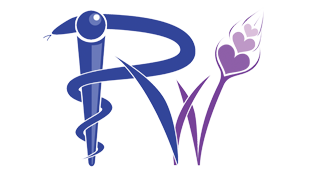How to Create an Action Plan for the New Year
Before 2018 began, we offered suggestions for New Year's resolutions that will improve your overall health and wellness. In it, we covered sleep, nutrition, hydration, and more. The list still holds up and we suggest you check it out if you're looking for a positive reframing of health-focused objectives.This year, we're thinking about more than just the types of goals to set — we want to talk about how to accomplish those goals. For us, that means following the SMART criteria. You've probably heard of it, or maybe you've even used it in management or planning. SMART stands for specific, measurable, attainable, relevant, and time-bound.The methodology comes naturally to many of us. For instance, when outlining a chore or a project, you wouldn't write, "Do It" next to a big check box. No, you would have several smaller boxes that represent the steps you need to take in order to complete the overall task at hand. The SMART criteria uses that approach — but it does more than just break down big picture ideas into smaller, bite-sized pieces. This benchmark is designed to help keep your goals clear-cut, manageable, and, best of all, achievable.Read on to learn more, and to see if it can change the way you think about goal planning so you can make resolutions that work for you!
SPECIFIC
Saying "I'm going to be more active" doesn't leave us with any real, actionable steps, but reframing that as "I'm going to exercise 30 minutes every day" provides a starting point from which we can create a plan.Focus on goals that give you clarity and direction. You may know that you want to improve your overall health in 2019, but what steps will you need to take to get there? Think about your morning routine, your meal planning, your stress management, and your sleep habits, and what concrete steps you could take to improve those specific aspects of your health. Once you start zooming in, it will be easier to narrow down the steps you have to take to achieve those broad goals.
MEASURABLE
Measurable goals and objectives are essential for evaluating progress in any situation — be it work, learning, or personal development. When a goal is specific and measurable, it's more likely to be achieved.Choosing a measurable goal usually involves thinking through a measurement that you can realistically calculate. You should be able to present tangible evidence for these goals. For example, being happier is not evidence. Practicing self care through specific actions, such as scheduled rituals of meditation and relaxation, or by focusing on gratitude and compassion through daily journaling techniques, is something you can provide evidence for.This can go a long way in refining what exactly it is that you want, too. Defining the physical manifestations of your goal or objective makes it clearer, and easier to reach.
ACHIEVABLE
This is where you have to be realistic with yourself, the time and work you're able to put in, and what may need to take a backseat so that you can prioritize your goals. You're never too old, too out of shape, too untrained to turn your dreams into reality; we simply don't buy into that negative framing. But it is important to set practical goals that, through focus and determination, you can accomplish — and feel good about achieving.
RELEVANT
Why do you want to reach this goal? What is the objective behind the goal, and will this goal really achieve that?Make sure your goals align with who you are and what your values are. If you're setting goals that you aren't passionate about, your heart just isn't going to be in it. Your goals should be relevant to you so that you can commit to the steps you'll need to take to get there. When setting a goal, ask yourself what the goal means to you.
TIME-BOUND
Deadlines help us switch to action. Without them, we put things off for another day, prioritizing more urgent matters. But a gentle ticking clock can remind us to schedule time for our goals. Keep the timeline realistic and flexible, to avoid adding unnecessary stress and anxiety. Being too stringent on the timely aspect of your goal setting can have the adverse effect of turning the learning path of achieving your goals and objectives into a hellish race against time — which is most likely not how you want to achieve anything. So put a helpful timeline on your goals and go after them!
We're curious to know what types of resolutions you are setting for a healthy new year. Leave a comment and let us know!If you want more health tips, subscribe to our newsletter and receive our wellness wisdom right in your inbox.Patti Rugg is a Certified Integrative Nutrition Health Coach and Co-Founder of Rugg Wellness, PC. with Peter Rugg.






